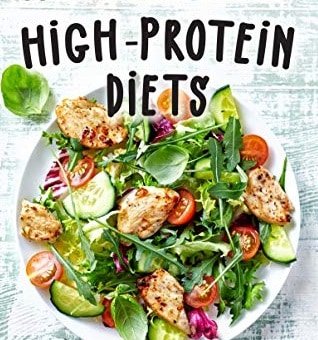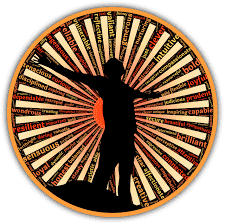High Protein Foods , benefits and Protein Deficiency
Contents
High Protein Foods, benefits and Protein Deficiency
Brain cells, muscles, skin, hair, and nails are parts of the body that are protein-based. Estimates suggest that about half of the dry weight of the human body consists of proteins. High protein foods are used for strong muscles and hair.

proteins are broken down during digestion to release amino acids. Amino acids are the basic components of all proteins. Once in the body, these amino acids are used to produce new proteins, including enzymes and hormones, such as insulin. Proteins are also sometimes used as an energy source.
Which Foods Contain Proteins?
High Protein Foods
- meat
- chicken
- fish
- eggs
- tofu
Some Proteins
- legumes
- nuts
- nut butter
- seeds
- seed butter
- milk
- cheese
- cottage cheese
- soy drinks
- yogurt
Low Protein
- whole-grain bread
- rice
- pasta
- quinoa
- barley
Benefits of Protein
Eating high protein foods has many benefits, such as muscle development, weight loss. Although eating lots of protein can be useful, a balanced diet is an essential part of staying healthy.
Maintain Muscle Mass
At the age of 50, people gradually start to lose skeletal muscle. This loss is known as sarcopenia, it is common in the elderly, but it can also lead to chronic diseases, poor nutrition, or inactivity. Protein intake can likely help maintain muscle mass and strength, which is vital for the ability to walk and reduce the risk of injury to older people due to falls. It is also essential that the elderly consume ‘effectively’ proteins, which means eating foods with high-quality proteins, such as lean meat.
Powerful Exercise and Protein Needs
People who train vigorously or attempt to increase muscle mass do not need to consume extra protein. Studies show that power trainers that do not eat extra proteins (either in food or protein powder) still build muscle mass to the same extent as power trainers that supplement their diet with proteins. A protein-rich diet can strain the kidneys and liver and cause excessive loss of mineral calcium.
Reduces Appetite and Hunger
The three macronutrients (fats, carbohydrates, and proteins) influence your body in different ways. The protein lowers the level of the hunger hormone. If you want to lose weight or belly fat, replace some of your carbohydrates and fats with protein. It is simple as making your potato or rice smaller while adding some protein-rich diet.
Good for Bones
Animal protein has significant benefits for bone health
People who eat more protein have stronger bone mass and lower risk of osteoporosis and fractures. Eating protein foods and staying active is an excellent way to prevent that.
Helps in Maintaining Weight loss
the protein-rich diet increases metabolism and leads to an automatic reduction in calories and craving; many people who increase their protein intake tend to lose weight.
Losing weight is just the beginning. Maintaining weight loss is a much greater challenge for most people. If anyone wants to prevent obesity, consider permanently increasing your protein intake.
What Proteins do in the Body?
Proteins play a role in almost all biological processes, and their functions vary widely. The most important functions of proteins in the body are building, strengthening, and repairing tissues. They can be:
structural, such as collagen
hormonal, such as insulin
carriers, for example, hemoglobin
enzymes such as amylase
These are all protein in nature
Keratin is a structural protein that reinforces protective coatings, such as hair. Collagen and elastin also have a structural function and also support connective tissue.
Most enzymes are proteins and catalysts, which means that they accelerate chemical reactions. For example, they are needed respiration in human cells or photosynthesis in plants.
Protein Deficiency
People who strictly follow vegetarian or vegan diets must ensure that they eat a wide range of vegetable proteins every day. otherwise, deficiency of protein will occur.
Symptoms of Protein Deficiency Include:
wear and contraction of muscle tissue
edema (accumulation of liquids, especially in the feet and ankles)
anemia (the inability of the blood to deliver sufficient oxygen to the cells, usually caused by nutritional deficiencies such as iron deficiency)
slow growth (in children).
Skin, hair and nail problems: Protein deficiency often leaves its traces on the skin, hair, and nails, which mainly consist of proteins.
Kwashiorkor in children is distinguished by, for example, flaky or cracked skin, redness, and spots with depigmented skin
Loss of muscle mass: muscles are the most abundant protein reservoir in the body. When protein from food is scarce, the body tends to take proteins from skeletal muscles to maintain tissues and body functions. As a result, a lack of protein leads to a loss of muscle mass over time. Even moderate protein insufficiency can cause muscle wastage, especially in the elderly.
deficiency or insufficiency of protein is harmful to children whose growing body needs a constant supply.
How many Proteins do Vegetarians Need?
People often think that being vegetarian means that it can be challenging to get enough protein. It’s not true! There are many vegetarian protein sources. Eggs, low-fat cheese, yogurt, and milk are good sources of animal protein. Vegans can enjoy beans, lentils, dried peas, tofu, nuts, and seeds. Vegetables and grain products also contain small amounts of protein.
Vegetarian diets have been associated with a lower risk of obesity, heart disease, and some cancers. Even if you are not a vegetarian, try a meal focused on vegetable protein sources at least once a week.
Very Protein-rich Diets are Dangerous
Fad diets that promote a very high protein and fat intake, in combination with very low carbohydrate intake, can be harmful.
Problems with High Protein Diets
They usually promote a deficient carbohydrate intake. Glucose, produced when your body breaks down carbohydrates from your diet, is your body’s favorite fuel. If your body does not receive enough







